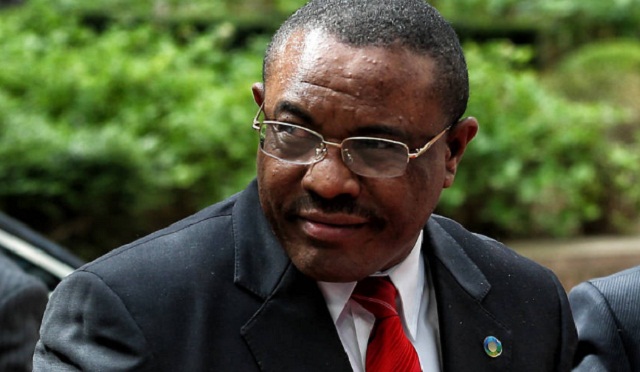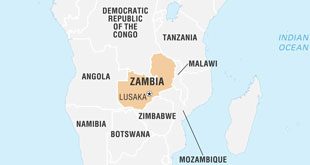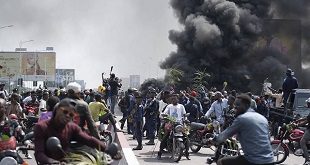
Long seen as a powerless “trojan horse” that did the bidding of stronger factions, the OPDO dramatically increased its political capital last year by reaching out to protesters.
Many expect Abiy would move the EPRDF away from its authoritarian tendencies if elected, Awol said.
But if the Oromos are passed over, Awol warned the OPDO may leave the coalition.
“If OPDO doesn’t get its way, I think there’s a very serious risk that the EPRDF would unravel as a party,” Awol said. “It would be very, I think, explosive for the country.”
The western analyst doubts that Abiy, who came up through Ethiopia’s hardline security agencies, or any other candidate, would bring the fundamental changes the protesters want.
“Whoever comes and whoever goes, I don’t see any change to the establishment,” said the analyst, who believes Deputy Prime Minister Demeke Mekonnen has the best prospects.
Demeke is chair of the the Amhara National Democratic Movement, which represents the second-largest ethnicity, the Amhara, and is the only party which hasn’t shaken up their leadership in recent months.
Meanwhile, Hailemariam’s party, the Southern Ethiopian People’s Democratic Movement, is expected to run their chairman, former education minister Shiferaw Shigute, on the argument that they should be able to finish Hailemariam’s term.
“If the southerners have the position again, it will be seen as the same as it was when Hailemariam was in power,” said Lovise Aalen, a political scientist at Norway’s Chr. Michelsen Institute.
– The dominant party –
The only party analysts expect not to field a candidate is the one seen as the coalition’s strongest: the Tigrayan People’s Liberation Front (TPLF).
Since leading the campaign to remove the communist Derg regime in 1991, the TPLF has been accused of controlling every facet of government in Ethiopia.
That belief underpinned the protests by the Oromo and Amhara that began in 2015 and resulted in tens of thousands of arrests and about 940 deaths, by the government’s own tally.
Calm returned only after the government imposed a state of emergency in October 2016 that lasted for 10 months.
The TPLF is working behind the scenes to maintain their influence, said political analyst Hallelujah Lulie, and that will likely mean keeping Abiy out of the prime minister’s office.
“They could be having a ‘never Abiy’ movement,” Hallelujah said. “The TPLF will seek to preserve their dominance in the coalition.”
 The Independent Uganda: You get the Truth we Pay the Price
The Independent Uganda: You get the Truth we Pay the Price


